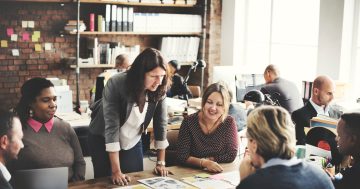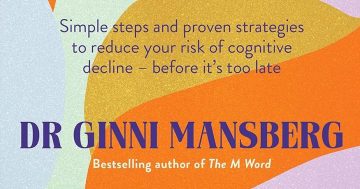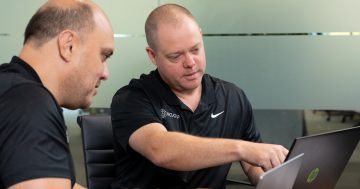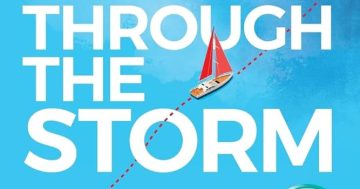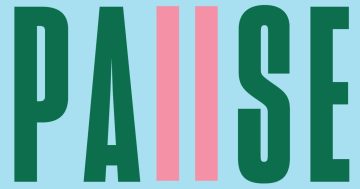Michelle Gibbings* says some lockdown reading reinforced her belief that she must always be prepared to expect the unexpected.
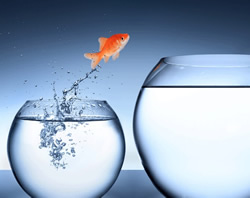 One of the upsides of lockdown (yes, there are some), is having more time to read novels.
One of the upsides of lockdown (yes, there are some), is having more time to read novels.
I’ve recently been reading Below Deck by Sophie Hardcastle.
It’s the story of 21-year old Olivia, who meets Mac and Maggie, changing her life forever.
As Mac is explaining to Olivia the finer points of learning to sail, he explains there are three steps.
The first step is finding out how much you don’t know.
The second is learning that the ocean and wind are unknowable, which means no matter what you think you know, you must always be open to the unexpected.
The third step is you can’t change the wind. All you can do is learn to adjust the sails.
These words struck me as so poignant and relevant for our time.
Very often we feel like we need to have all the answers. We feel like we should always be in control.
Yet there is so much in life that is unexpected, unexplained and at times unknowable.
By attempting to be all-knowing, all-controlling and all-powerful, we can lose sight of what really matters.
We can get unhealthily consumed by things that are outside our control, and ultimately find ourselves stuck.
Thriving in today’s environment isn’t about power and control. It’s about understanding and adaptability.
This starts with accepting that change starts with you.
It’s much easier to sit back and identify how your colleagues or team members need to change, than to identify what may need to change in you.
Harvard academics, Robert Kegan and Lisa Lahey studied why many crucial change efforts fail.
They found that one of the core problems is the gap between what is required and a leader’s own level of development.
In their book, How the Way we Talk Can Change the Way We Work, they say this:
“It may be nearly impossible for us to bring about any important change in a system or organisation without changing ourselves (at least somewhat).”
Adapting to a changing world requires each of us to understand the meaning we are putting on what is happening.
We must then examine and inquire into the extent to which that meaning is valid or invalid.
This isn’t about digging into your technical skills.
It’s delving into the meaning that drives your thoughts and actions, and the mental model you are using to make decisions.
What’s the prism you are using to view the world? That prism is likely filled with assumptions and pre-conceived ideas.
Adaptability requires you to challenge those assumptions and drop those pre-conceived ideas.
By doing this you can shift your mindset, operating style and behaviour to suit the context of the change you are facing.
Oprah Winfrey said: “You are responsible for the energy that you create for yourself, and you’re responsible for the energy that you bring to others.”
Stop and pause for a minute. Think about where you are directing your energy at the moment.
Are you focusing on what you can control or influence, or what you can’t control or influence?
Our brain loves feeling like it is in control. So, when the world feels out of control, identify those small things around you that you can make decisions on.
Having, even just a modicum of autonomy, helps you feel better.
As part of this process, consider who you are spending most of your time with. Do they lift you up or drag you down?
When there is lots of change and uncertainty, it’s helpful to be judicious about who you spend time with.
Spending time with the office energy thief, who is solely focused on their needs and is always seeking to drag you down, won’t help.
With change comes the challenge. What makes the challenge more manageable is finding ways to break the work it into smaller pieces.
With bite-size pieces, you can make more sustainable and regular progress.
Having a sense of progress — a sense of achievement — is crucial. We all love to feel like we are heading in the right direction.
So be clear on your mini-goals. Write them down. Tick them off your progress chart and celebrate your achievements — even when they may feel small.
As we get older, it’s easy to get stuck in our ways.
We become more reluctant to try new things and cling to old behavioural patterns that once worked and are now long past their use-by date.
In contrast, children learn every day.
Their play is a form of experimentation, and while they might not succeed in their efforts, they quickly dust themselves off and try again.
Where are the elements in your day where you can safely play and experiment?
Not only are you likely to learn something, but you are also likely to have some fun along the way.
As source unknown once said: “Life is an adventure – not a chartered course.”
*Michelle Gibbings is a Melbourne-based change leadership and career expert and founder of Change Meridian. She can be contacted at [email protected].
This article first appeared at changemeridian.com.au



